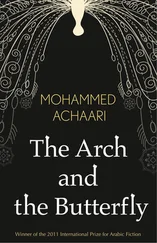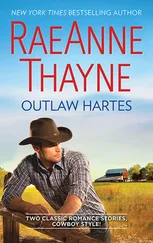“My good man,” I addressed him, falling into character, “you seem to be a little out of tune.”
“Aye, sire,” tugging his rusty forelock, “so I seem,” and he sounded exactly like Andy’s famous Irish impersonation, the one he uses to con free drinks on St. Patrick’s Day.
“I trust you will correct the defect.”
“An it please you, sire,” the forelock bit again, “I’m not allowed.”
“No?”
“ ‘Throw ’im a clinker now and again for authenticity,’ they tells me, beggin’ your pardon, sire.”
“Oh.” How was I supposed to handle this? I decided to try ignoring it. But, “Pardon me, do you have any relatives named Blake?”
“Relatives?” He laughed. “God love ye, sire, you know the likes o’ me ain’t got no relatives. We’re all too poor, beggin’ your pardon. You want relatives, sire, you go talk to the leader there. ’E’s got himself a Nephew, he does, playin’ second fiddle. Or them four drum boys, now. They’re all each other’s Brothers, so they say. But I ain’t got no relatives, sire. Not me.”
“This is turning into one hell of a night.” Michael was back, with company: those oddly-dressed rowdies from across the street. I wasn’t at all sure about those people. They looked like the kind of Saturday types I generally avoid, but Mike was my best friend so I held my peace.
“What are we going to do with all this?” I wondered, waving florid circles in the air.
“Who am I to question the dictates of the gods? Onward to The Garden of Eden. Why not?”
Why indeed. “That’s boss.”
It took awhile to start moving. The orchestra was already in order, but Mike’s associates couldn’t agree on who ought to walk where. They exhausted the possibilities of discussion and negotiation in less than five minutes and asked Mike’s permission to retire to the nearest alley for a conference. I found myself wondering about Mike.
The rowdies’ conference took some fifteen minutes. Then they returned, none the visible worse for wear, and took up stations flanking the orchestra, four on each side. They stood there glowering and making highly improper and hostile gestures at each other while Mike and I, both a bit puzzled, walked to the head of the column.
“At your pleasure, sire,” the leader bowed.
“You may begin,” I nodded.
And we did.
There are problems associated with marching an orchestra in full throat through lower Manhattan after midnight that the average man can’t possibly imagine, and I envy him. The police were no problem — not after the leader produced, on irate demand, an appallingly official city permit to hold a parade through those streets at that hour playing music — but the people who lived in the buildings we passed were difficult to cope with. They threw some of the strangest things, and I couldn’t see just how they were being coped with. I was starting to develop some faith in the Reality Pill, though. It seemed to give good service.
Mike’s acquaintances continued to worry me. “Michael,” I inquired as we columned right onto Broadway, “your — friends — look very interesting.”
“Yes.” he beamed. “Aren’t they great? I’m really very proud of them.”
“I can see where you might be. Ah, what are they?”
“Gods, of course. A whole pantheon. It’s a little pantheon, I’ll grant you, but it has a certain fey charm of its own”
“Gods, eh?” They were still tossing graphic threats at each other and their fey charm was moderately difficult to see. Acquired taste, perhaps. “Gods of what?”
“Oh, this and that. You know. I’ll introduce you.” He turned and yelled, “Hey, Mick, front and center!” then turned back and said, “You’ll like Mick. He’s quite well done.”
Mick, it seemed, was the god of teenyboppers, and quite well done. A little under seven feet tall and glowing, with shoulder-length gold hair, deep blue vacant eyes, and a pretty face that managed to look healthy, sensitive, pouting, and cheerful all at once, he was slimly dressed in white-net T-shirt and tights over gold and brown paisley briefs, and shod in supple fawn suede boots that tapered three inches higher aft than fore. He exuded, furthermore, an almost irresistible electric adolescent sexuality. Once more I wondered about Michael.
In the prettiest boy-man voice I’d ever heard, Mick spoke a few choice words so flawlessly fatuous I forgot them before he’d finished speaking, then returned to his place beside the orchestra and set to snarling at his colleagues once again.
“That’s unfair criticism, Mike,” I pointed out. “Most rock and roll musicians are…”
“Cool it. I’m not criticizing them.”
He wasn’t, I realized, not at all, and God help MacDougal Street.
Then we had the incident of the parade permit, after which I met Toke, the god of pot, just as tall as everyone but skinnier than most, no particular age, quaintly dressed in nickel bags and cigarette papers, with a hempen wreath in his shaggy hair (the very same color as yours) and reeking of patchouli so strong I could almost walk on it: another threat to MacDougal Street’s stability.
We took a left from Broadway onto Bleecker. By then we’d started gathering satellites — a minor crowd of young girls trying to touch Mick — and my orchestra was playing something that sounded suspiciously like “Hard Day’s Night,” with more false notes than usual from the unrelated bassoon. A six-foot-tall blue lobster — another little something of Mike’s, I gathered slightingly — watched us make the turn.
That reminded me. “Shouldn’t we be taking notes?”
“Do you think we can forget?”
“Anything’s possible.”
“You’ve got a point there.”
The Village proper, if there is such a thing, was still some four blocks ahead, a sudden bright island in Manhattan’s after-midnight dimness. Already we could see that even though the entertainment houses were closed, Bleecker Street was as crowded as usual, hopefully with nobody we knew. Michael, therefore, stepped up the tempo of introductions, calling the rest of his pantheon front and center double time and dismissing them before they had a chance even to say hello, which was all to the good. They were:
* Fellatia, the goddess of something she and Mike coyly refused to name. She was a bulbous chick of moderate ugliness, aged anywhere between eighteen and thirty, and dressed all in pretty-colored Kleenex. Despite Mike’s brusque dismissal, she tried to assault me for nameless reasons of her own, but we beat her off. I began to think MacDougal Street might not survive the evening.
* Phlipout and Phlippina, twin deities of disorder, were muscular male and female teenyboppers — very healthy and confused — in whose presence, Mike claimed, all things tended to dissolve into the most spectacular chaos imaginable. The blithe madness lurking in their eyes made this seem all too likely, and I noticed that their place in the marching order was right beside my friend the out-of-tune bassoonist.
* Moe, the god of tourists, was forty-five, fat, crew-cut, drunk, bellicose, and gifted, so Mike said, with superhuman powers of abuse.
* Buldge, the goddess of minor disasters, was a kind of accidental fertility figure, very pregnant, incredibly naked, alarmingly busty and genital, with unkempt brownish hair hanging down to where her waist used to be, whose merest glance could delay a chick’s period two weeks.
* Chuck, the god of miscellany, was a super-Mike of sorts, taller and leaner but with the same look of bland malevolence and random fanaticism that so endeared Mike to everyone who could put up with him. I suspected Chuck was basically road manager for the rest of Mike’s crew.
Читать дальше











